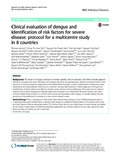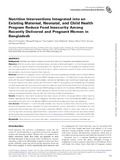| dc.contributor.author | Jaenisch, Thomas | |
| dc.contributor.author | Hoai Tam, Dong Thi | |
| dc.contributor.author | Thanh Kieu, Nguyen Tan | |
| dc.contributor.author | Ngoc, Tran Van | |
| dc.contributor.author | Tran Nam, Nguyen | |
| dc.contributor.author | Kinh, Nguyen Van | |
| dc.contributor.author | Yacoub, Sophie | |
| dc.contributor.author | Chanpheaktra, Ngoun | |
| dc.contributor.author | Kumar, Varun | |
| dc.contributor.author | Chai See, Lucy Lum | |
| dc.contributor.author | Sathar, Jameela | |
| dc.contributor.author | Sandoval, Ernesto Pleités | |
| dc.contributor.author | Marón Alfaro, Gabriela Maria | |
| dc.contributor.author | Laksono, Ida Safitri | |
| dc.contributor.author | Mahendradhata, Yodi | |
| dc.contributor.author | Sarker, Malabika | |
| dc.contributor.author | Ahmed, Firoz | |
| dc.contributor.author | Caprara, Andrea | |
| dc.contributor.author | Benevides, Bruno Souza | |
| dc.contributor.author | Marques, Ernesto T. A. | |
| dc.contributor.author | Magalhaes, Tereza | |
| dc.contributor.author | Brasil, Patricia | |
| dc.contributor.author | Netto, Marco | |
| dc.contributor.author | Tami, Adriana | |
| dc.contributor.author | Bethencourt, Sarah E. | |
| dc.contributor.author | Guzman, Maria | |
| dc.contributor.author | Simmons, Cameron | |
| dc.contributor.author | Quyen, Nguyen Thanh Ha | |
| dc.contributor.author | Merson, Laura | |
| dc.contributor.author | Dung, Nguyen Thi Phuong | |
| dc.contributor.author | Beck, Dorothea | |
| dc.contributor.author | Wirths, Marius | |
| dc.contributor.author | Wolbers, Marcel | |
| dc.contributor.author | Lam, Phung Khanh | |
| dc.contributor.author | Rosenberger, Kerstin | |
| dc.contributor.author | Wills, Bridget | |
| dc.date.accessioned | 2018-01-03T06:27:51Z | |
| dc.date.available | 2018-01-03T06:27:51Z | |
| dc.date.issued | 2016-02-18 | |
| dc.identifier.citation | Jaenisch, T., Tam, D. T. H., Kieu, N. T. T., Van Ngoc, T., Nam, N. T., Van Kinh, N., … Wills, B. (2016). Clinical evaluation of dengue and identification of risk factors for severe disease: protocol for a multicentre study in 8 countries. BMC Infectious Diseases, 16(1), 120. https://doi.org/10.1186/s12879-016-1440-3 | en_US |
| dc.identifier.other | 14712334 | |
| dc.identifier.uri | http://hdl.handle.net/10361/8890 | |
| dc.description | This article was published in the BMC Infectious Diseases [© Jaenisch et al. 2016] and the definite version is available at : https://doi.org/10.1186/s12879-016-1440-3 . The Journal's website is at: https://bmcinfectdis.biomedcentral.com/articles/10.1186/s12879-016-1440-3 | en_US |
| dc.description.abstract | Background
The burden of dengue continues to increase globally, with an estimated 100 million clinically apparent infections occurring each year. Although most dengue infections are asymptomatic, patients can present with a wide spectrum of clinical symptoms ranging from mild febrile illness through to severe manifestations of bleeding, organ impairment, and hypovolaemic shock due to a systemic vascular leak syndrome. Clinical diagnosis of dengue and identification of which patients are likely to develop severe disease remain challenging. This study aims to improve diagnosis and clinical management through approaches designed a) to differentiate between dengue and other common febrile illness within 72 h of fever onset, and b) among patients with dengue to identify markers that are predictive of the likelihood of evolving to a more severe disease course.
Method/Design
This is a prospective multi-centre observational study aiming to enrol 7–8000 participants aged ≥ 5 years presenting with a febrile illness consistent with dengue to outpatient health facilities in 8 countries across Asia and Latin America. Patients presenting within 72 h of fever onset who do not exhibit signs of severe disease are eligible for the study. A broad range of clinical and laboratory parameters are assessed daily for up to 6 days during the acute illness, and also at a follow up visit 1 week later.
Discussion
Data from this large cohort of patients, enrolled early with undifferentiated fever, will be used to develop a practical diagnostic algorithm and a robust clinical case definition for dengue. Additionally, among patients with confirmed dengue we aim to identify simple clinical and laboratory parameters associated with progression to a more severe disease course. We will also investigate early virological and serological correlates of severe disease, and examine genetic associations in this large heterogeneous cohort. In addition the results will be used to assess the new World Health Organization classification scheme for dengue in practice, and to update the guidelines for “Integrated Management of Childhood Illness” used in dengue-endemic countries. | en_US |
| dc.language.iso | en | en_US |
| dc.publisher | © 2016 BMC Infectious Diseases | en_US |
| dc.relation.uri | https://bmcinfectdis.biomedcentral.com/articles/10.1186/s12879-016-1440-3 | |
| dc.subject | Dengue | en_US |
| dc.subject | Severe disease | en_US |
| dc.subject | Risk prediction | en_US |
| dc.title | Clinical evaluation of dengue and identification of risk factors for severe disease: protocol for a multicentre study in 8 countries | en_US |
| dc.type | Article | en_US |
| dc.description.version | Published | |
| dc.identifier.doi | https://doi.org/10.1186/s12879-016-1440-3 | |


